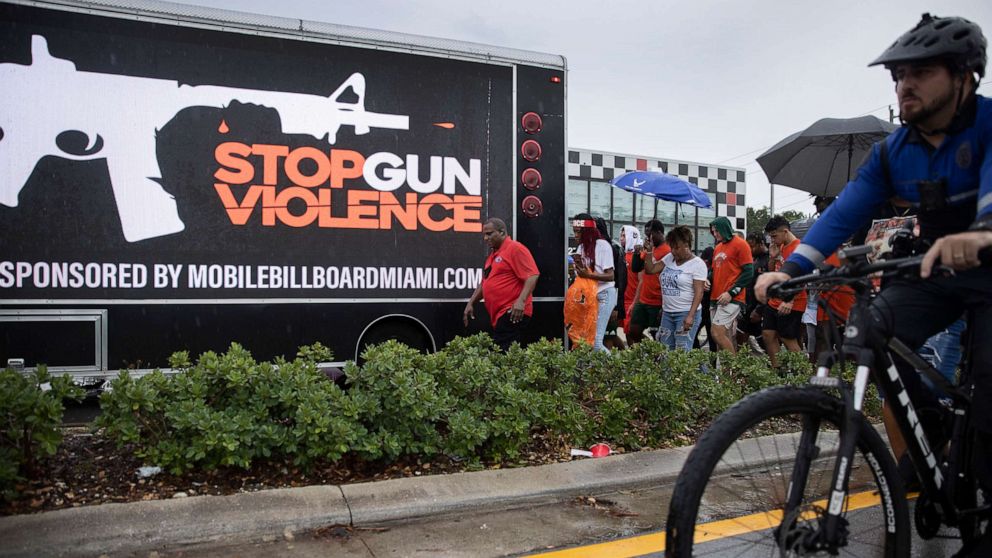Shootings at graduation parties reminder of gun violence ‘epidemic’ for students, advocates
After a year of students dealing with the emotional and mental toll of remote school on top of a deadly pandemic, the return to in-person learning was seen as a return to some semblance of normalcy.
But for many students, the return to schools, and gathering in larger groups is also a reminder of the underlying threat of gun violence, which has surged into the spotlight in recent months.
The COVID-19 pandemic coincided with an unexpected rise in gun violence and recently, several graduation-related events that have resulted in shootings highlight the “epidemic” of gun violence in the U.S, officials said.
Activists say the incidents reveal a number of issues, including the sheer number of guns in the country, the lack of security around those guns, minimal consequences in many non-fatal shootings and what they say are "weak" gun laws.
Surging gun violence
Data from The Gun Violence Archive, an independent archive of gun violence incidents, shows that 43,558 people died from firearm-related injuries, including suicide, in 2020, compared to 39,537 in 2019.
This year, the United States is on track to hit a similar figure, with over 20,000 people having died so far from firearm-related injuries, including over 700 children and teens.
The level of gun violence during the pandemic came as a surprise initially to Dr. Cassandra Crifasi, deputy director of the Johns Hopkins Center for Gun Violence Prevention and Policy. But she said that “all of the same drivers of violence in terms of economic instability … were just as prevalent in practice and exacerbated by this pandemic."
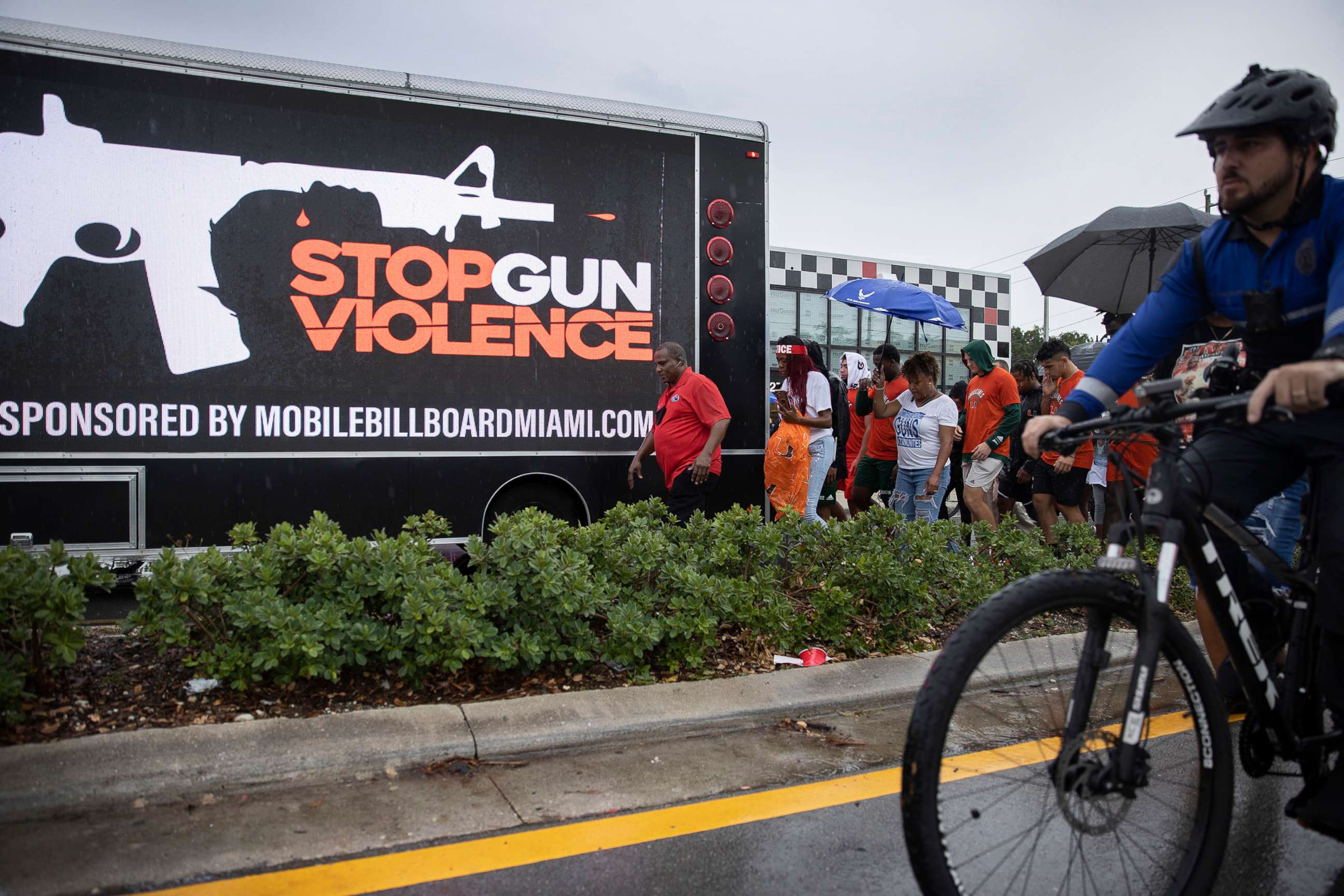
With the warmer summer months ahead, when gun violence traditionally rises, Crifasi said the level of violence is likely to persist.
In light of this, states such as New Jersey are preparing for graduation ceremonies to be potential targets. The Regional Operations & Intelligence Center of the New Jersey State Police views these ceremonies as “attractive targets due to the presence of large crowds and the likelihood that audience members will record and/or livestream the ceremony," according to its intelligence dissemination report.
Recent incidents
In a series of recent shootings at graduation parties around the country, many of the victims and suspects were in their teens and early 20s.
As people left a graduation party at the Hookah Inn in Kendall, Florida on June 6, people in two vehicles opened fire, killing three people and injuring five according to Miami-Dade Police. Three teenagers that were believed to be at the Hookah Inn have been arrested and charged with attempted first-degree murder for a shooting that happened on the Florida Turnpike moments before the graduation party ended. Officials are investigating both shootings as they believe the two may be connected.
On the same day in Sanford, North Carolina, police charged a 16-year-old as a juvenile with murder and possession of a firearm as a minor after Jason Lamont Harrington Jr. 18, was killed at a graduation party.
In Rocky Mount, North Carolina, a 17-year-old was shot and 19-year-old Frank White IV was killed at a graduation party on June 5.
Key issues
One of the reasons these shootings continue to happen, according to Crifasi, is that many of the perpetrators are never caught.
“The national clearance rate, on average for homicides, is around 45 to 50%, and it's even lower for non-fatal shootings,” Crifasi said. “So we have a pretty abysmal track record at holding people accountable for engaging in violence.”
According to Crifasi, when teens and young adults commit these acts of violence, many may not fully understand their actions, as “their prefrontal cortex isn’t fully evolved, and so they don't always have long-term planning, they're not always thinking about the consequences of their behavior.”
Another issue is gun security, according to Lisa Geller, state affairs manager of The Coalition to Stop Gun Violence, a violence prevention organization. She said too many children have access to guns that aren’t secured properly.
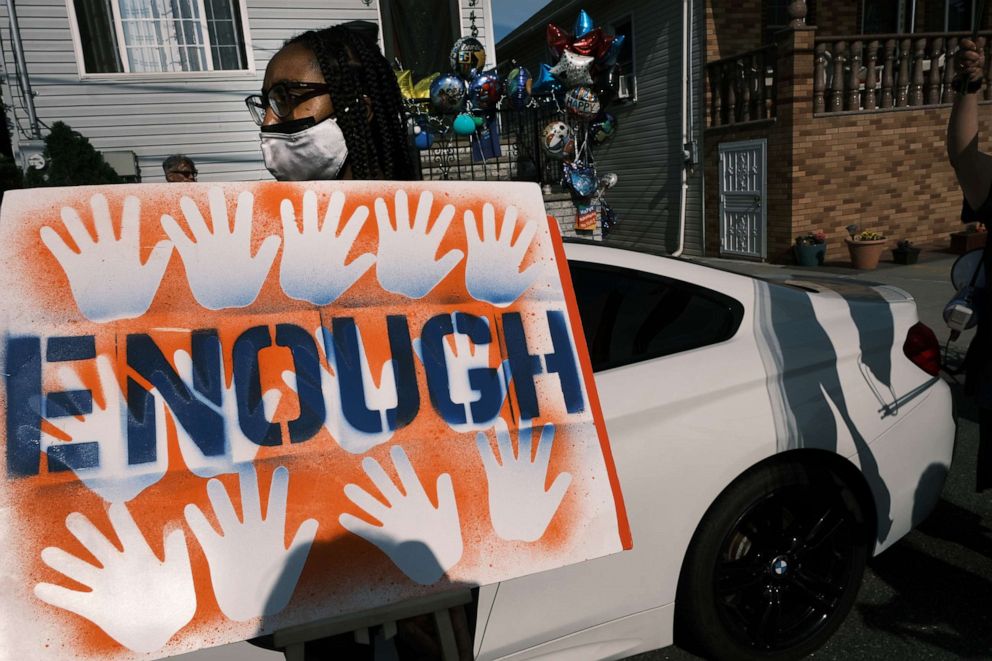
“About a third of American homes with kids do not lock their firearms up safely, and so when you're looking at a significant number of homes, knowing that there are more guns in this country than there are people, that is a lot of children who have access to firearms,” Geller told ABC News.
Finding ways to reduce access to guns for underage teens is key to reducing teen-involved gun violence, according to Crifasi, because “these kids can't go out and buy guns on their own.”
Activists demand change on 'weak' gun laws
Shannon Watts, founder of Moms Demand Action, a grassroots organization fighting for gun violence public safety measures, said that the graduation party shootings “reminded us why this epidemic demands immediate action.”
“Graduation parties should be celebrations, not bloodbaths,” Watts told ABC News. “Our nation’s weak gun laws enable gun violence at parties, places of work and worship, and other spaces where we should be safe.”
The upwards trend in gun sales since 2000 concerns Geller, who adds she is "very worried about the number of guns that were acquired last year and are still being acquired. The more guns that we add into this country, the more people are going to be at risk of gun violence."
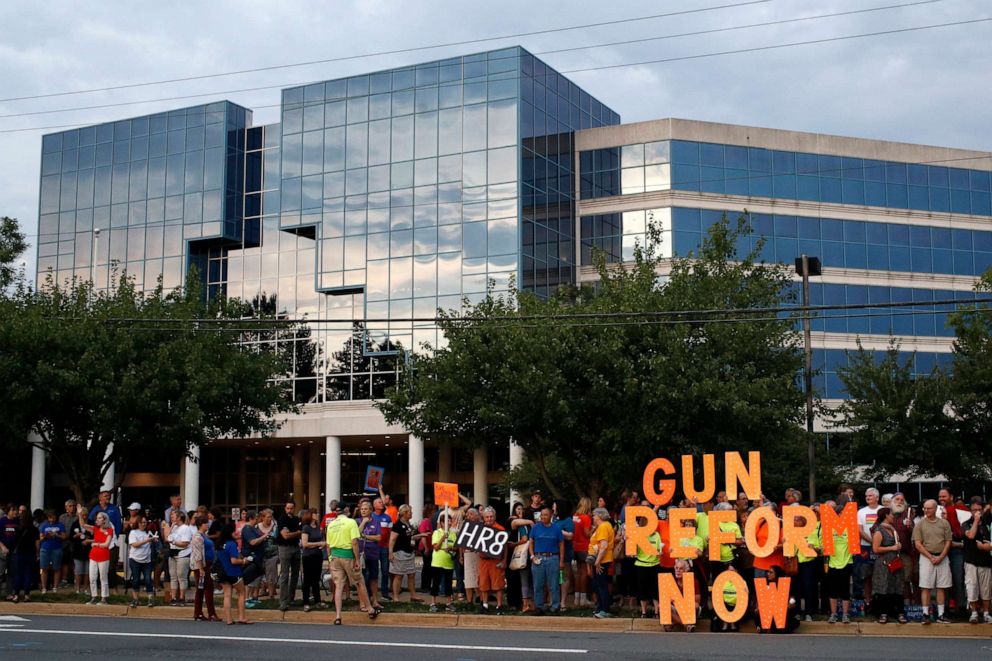
According to The Trace, a non-profit that reports on gun violence in America, 1.6 million guns were sold in May 2021, though the highest spike in gun purchases was during the pandemic in June 2020, with 2.7 million guns sold.
Teenagers like Jeannie She, 17, a board member of Students Demand Action, a volunteer organization associated with Moms Demand Action and Everytown for Gun Safety, are advocating for broad action on all levels, like encouraging safe storage of firearms in the home, developing community-based violence intervention programs in communities with high rates of gun violence and pushing for federal legislation to support schools so that students no longer need to worry about the next school shooting.
Yoonie Yang, 18, a senior from Chattanooga, Tennessee, also with Students Demand Action, is worried about gun violence increasing in public spaces as the country moves out of the pandemic.
“We have a lot of loopholes and laws regulating firearms possession and purchasing, and we've even seen it in the last couple of months, as we've opened up again, we've already seen shootings in public places,” Yang told ABC News.
And Makayla Jordan, a 17-year-old from Birmingham, Alabama, sees gun safety reform as being long overdue.
“In my 17 years of living, there hasn't been a single meaningful gun violence or gun safety bill that has been passed,” said Jordan, who said she got involved with Students Demand Action after a fatal school shooting in her community. Now, like others, she advocates for background checks, gun buybacks and community violence prevention organizations to combat gun violence.
“I definitely grew up in the middle of the gun violence crisis. So I know for sure that students younger than me are concerned about this, even students that are freshmen in high school, that are eighth-graders, are worried about this issue,” Jordan said.
What’s to come
U.S. Attorney General Merrick Garland acknowledged a rise in violent crime in the country last month, beginning in 2020, and launched a three-prong program to attempt to tackle it. He said the approach aims to build trust between law enforcement and communities as well as measure the effectiveness of new targeted practices to lower gun violence. The Project Safe Neighborhoods (PSN) program, which provides community-based violence intervention programs and efforts to place the U.S. Attorney’s Office in direct contact with initiatives on federal, state, and local levels, is part of Garland’s approach to mitigate violence crime that arises in the summer.
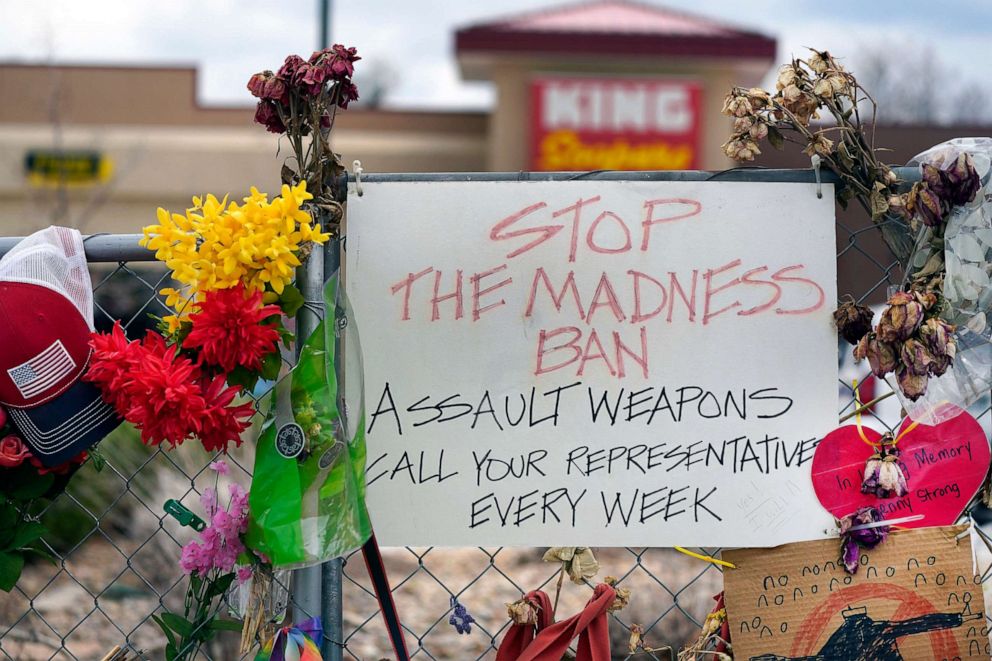
These programs have achieved previous success when led by members within a given community and with both state and federal support, according to Crifasi. “Oakland is a great example of how they've worked with these community based organizations to advance these principles of peace and to make sure that violence is being interrupted.”
After the House recently passed two bills that would expand background checks on gun sales in the U.S., activists are hoping that if passed in the Senate, that they continue to gain momentum on gun safety legislation.
“At age 18, I have never lived in a country in which we have seen gun sense legislation come from Congress, or from the White House,” said Yang. As the bills rest in the hands of the Senate, she hopes that all levels of government “wake up to the reality of gun violence.”
